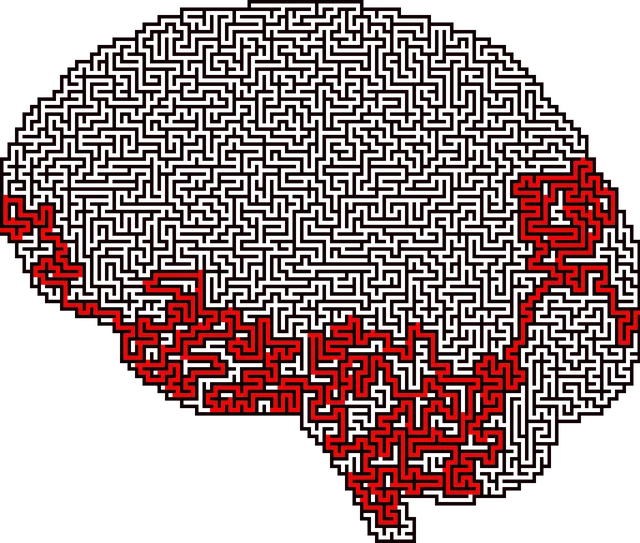Kaiser Permanente's training programs in Wheat Ridge empower mental health professionals through advanced data analytics, cultural sensitivity training, and evidence-based practices. By focusing on meticulous data collection and interpretation, these programs identify trends in common mental health issues like depression, enabling targeted prevention strategies. The location serves as a hub for collaboration, fostering continuous learning and improved patient outcomes. Ethical considerations, including privacy and confidentiality, are paramount, ensuring healthcare providers are equipped to offer personalized and effective interventions while maintaining self-care routines.
Mental health data analysis is a powerful tool for understanding and improving patient outcomes. This comprehensive guide explores various aspects, from deciphering complex mental health data to ethical considerations. We delve into Kaiser Permanente’s proven approach in Wheat Ridge, highlighting their innovative training programs that equip professionals with vital knowledge. By interpreting results effectively, healthcare providers can unlock insights driving better care tailored to individual needs.
- Understanding Mental Health Data: A Comprehensive Overview
- Kaiser Permanente's Approach to Data Analysis in Wheat Ridge
- Training Programs: Empowering Professionals with Knowledge
- Interpreting Results: Unlocking Insights for Better Care
- Ethical Considerations and Best Practices in Mental Health Data Analysis
Understanding Mental Health Data: A Comprehensive Overview

Understanding Mental Health Data is a multifaceted endeavor, especially when considering the complex nature of human emotions and behaviors. Kaiser Permanente training programs in Wheat Ridge have played a pivotal role in equipping professionals with the tools to navigate this intricate landscape. These programs delve into the methodologies for collecting, analyzing, and interpreting data related to mental wellness. By fostering cultural sensitivity in mental healthcare practice, they ensure that strategies for empathy building are not just effective but also tailored to diverse patient backgrounds.
The process begins with recognizing the importance of accurate data collection, where every interaction is documented with care. This foundation enables subsequent analysis, allowing professionals to identify trends and patterns indicative of Mental Wellness. The insights gleaned from such analyses are instrumental in tailoring interventions and support systems, making mental healthcare more personalized and effective.
Kaiser Permanente's Approach to Data Analysis in Wheat Ridge

Kaiser Permanente has established itself as a leader in mental health care, and its approach to data analysis in Wheat Ridge is a prime example of this commitment. The organization prioritizes evidence-based practices, leveraging comprehensive datasets to gain insights into patient populations and tailor interventions effectively. Their training programs in Wheat Ridge focus on the Mind Over Matter Principles, empowering healthcare professionals to address emotional healing processes holistically.
By integrating advanced data analysis techniques, Kaiser Permanente identifies trends and patterns related to common mental health issues like depression. This enables them to implement targeted prevention strategies, such as early intervention programs aimed at reducing the impact of depression. The Wheat Ridge location serves as a hub for these initiatives, where healthcare providers collaborate to enhance patient outcomes through continuous learning and adaptation based on data-driven insights.
Training Programs: Empowering Professionals with Knowledge

Kaiser Permanente training programs in Wheat Ridge are instrumental in empowering mental health professionals with the latest knowledge and skills. These comprehensive programs often include workshops, webinars, and the Mental Wellness Podcast Series Production, designed to keep practitioners up-to-date on best practices and emerging trends in mental health care. By participating in these initiatives, healthcare providers gain insights into innovative techniques for Self-Care Routine Development for Better Mental Health, which is crucial in maintaining their own well-being while treating patients effectively. Furthermore, such training addresses critical areas like depression prevention, ensuring professionals are equipped to identify and address mental health issues proactively.
Interpreting Results: Unlocking Insights for Better Care

Interpretation of mental health data is a powerful tool for healthcare providers and organizations like Kaiser Permanente training programs in Wheat Ridge. By carefully analyzing trends and patterns within the data, valuable insights emerge, guiding improvements in patient care and outcomes. This process involves more than just numbers; it’s about uncovering stories, identifying at-risk populations, and recognizing cultural influences on mental health.
For instance, data analysis can reveal disparities in access to care among different demographics, prompting targeted interventions like enhanced Mood Management or Cultural Competency Training for Healthcare Providers. Understanding the emotional healing processes unique to various communities fosters more effective treatment plans. Ultimately, this level of interpretation allows Kaiser Permanente’s training programs to adapt and improve, ensuring that mental health services are tailored to meet the diverse needs of all individuals they serve.
Ethical Considerations and Best Practices in Mental Health Data Analysis

When analyzing mental health data, ethical considerations are paramount to ensure privacy, confidentiality, and informed consent. Kaiser Permanente training programs in Wheat Ridge prioritize these principles, emphasizing the responsible handling of sensitive information. This includes implementing robust security measures, anonymizing data where possible, and adhering to strict legal guidelines like HIPAA in the United States. By fostering a culture of transparency and trust, healthcare providers can promote Mental Health Awareness and build resilience within their communities.
Best practices in mental health data analysis encompass a multifaceted approach. These include comprehensive data collection methods that capture cultural nuances and diverse experiences, as well as utilizing evidence-based analytical techniques. Healthcare Provider Cultural Competency Training plays a crucial role in this process, empowering professionals to interpret data accurately while considering the unique backgrounds of their patients. This holistic strategy not only enhances the quality of care but also contributes to ongoing Resilience Building within healthcare systems.
Mental health data analysis is a powerful tool for improving patient care, as demonstrated by Kaiser Permanente’s innovative approach at their Wheat Ridge facility. By understanding complex data and interpreting results effectively, healthcare professionals can unlock valuable insights to enhance treatment plans. The article has explored various aspects of this process, from comprehending mental health data to ethical considerations. Additionally, the highlighted training programs offered by Kaiser Permanente serve as a game-changer, empowering professionals with the knowledge needed to navigate this intricate landscape. Through proper analysis and interpretation, we can foster better mental healthcare outcomes for all.






